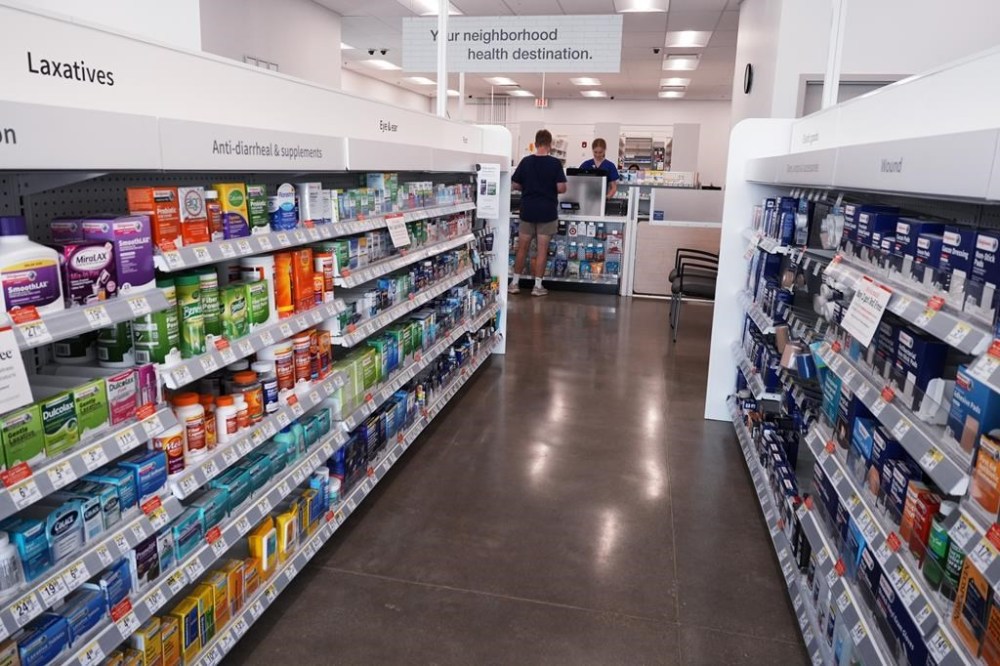Ottawa names experts to advise on creation of national pharmacare program
Advertisement
Read this article for free:
or
Already have an account? Log in here »
To continue reading, please subscribe:
Monthly Digital Subscription
$0 for the first 4 weeks*
- Enjoy unlimited reading on winnipegfreepress.com
- Read the E-Edition, our digital replica newspaper
- Access News Break, our award-winning app
- Play interactive puzzles
*No charge for 4 weeks then price increases to the regular rate of $19.00 plus GST every four weeks. Offer available to new and qualified returning subscribers only. Cancel any time.
Monthly Digital Subscription
$4.75/week*
- Enjoy unlimited reading on winnipegfreepress.com
- Read the E-Edition, our digital replica newspaper
- Access News Break, our award-winning app
- Play interactive puzzles
*Billed as $19 plus GST every four weeks. Cancel any time.
To continue reading, please subscribe:
Add Free Press access to your Brandon Sun subscription for only an additional
$1 for the first 4 weeks*
*Your next subscription payment will increase by $1.00 and you will be charged $16.99 plus GST for four weeks. After four weeks, your payment will increase to $23.99 plus GST every four weeks.
Read unlimited articles for free today:
or
Already have an account? Log in here »
Hey there, time traveller!
This article was published 14/11/2024 (372 days ago), so information in it may no longer be current.
OTTAWA – The federal government has tapped a panel of five experts to craft the path toward a universal pharmacare program.
Dr. Nav Persaud, the Canada Research Chair in health justice, will chair a committee that includes a variety of health-care professionals who are tasked with advising the government on the next steps of the program.
The Liberals and NDP negotiated the substance of a pharmacare bill as part of their now-defunct supply-and-confidence agreement.

Retail medications are displayed on shelves at a pharmacy in Deerfield, Ill., Thursday, July 25, 2024. THE CANADIAN PRESS/AP-Nam Y. Huh
The bill became law on Oct. 10, and allows the federal government to sign agreements with the provinces and territories to begin providing free access to contraceptives and diabetes medication.
Separately, the expert committee will come up with recommendations for creating a universal, single-payer pharmacare program.
The committee will submit a report to the health minister by Oct. 10, 2025, and that report will go to Parliament.
The experts include Linda Silas, president of the Canadian Federation of Nurses Unions; Amy Lamb, executive director of the Indigenous Pharmacy Professionals of Canada; Dr. Stéphane Ahern, an associate clinical professor at the Université de Montréal ; and Dr. Steve Morgan, an expert on pharmacare systems at the University of British Columbia.
The committee will engage with provinces and territories, Indigenous groups and experts as it prepares the report.
In a statement, the NDP says it welcomes the appointment of the committee.
The federal Conservatives have said they would reject a single-payer drug plan if they form government.
Conservative governments in Alberta and Ontario have also expressed skepticism about signing onto the initial deals with the Liberal government.
Health Minister Mark Holland has said he hopes to have deals signed with all provinces and territories by next spring to begin coverage of birth-control and diabetes medications.
British Columbia has already signed a memorandum of understanding to provide coverage. Manitoba’s NDP government began covering prescription birth control on Oct. 1 and has indicated interest in making a deal with Ottawa.
That initial program is a universal, first-dollar, single-payer model, according to Holland, meaning that patients will not pay for the medications. People with a private health plan that covers the medicines can choose whether to use their health coverage or the federal plan.
But when asked about the national program’s structure last month, Holland refused to speculate on whether it will be a mixed-payer system or a single-payer system.
Instead, he said the expert panel will be tasked with sorting out what type of system will work best.
This report by The Canadian Press was first published Nov. 14, 2024.
— With files from Laura Osman


